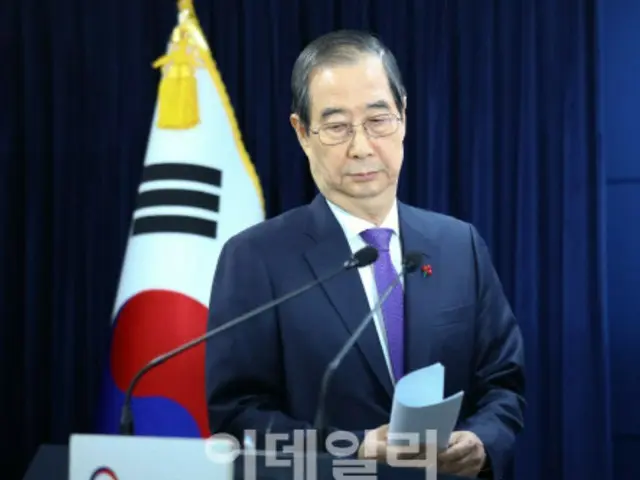This will be the first impeachment proceeding against an acting president in history, and if the bill passes, it will be an unprecedented situation in which an "acting acting president" will assume the duties of the president, which will inevitably lead to further political turmoil.
The political turmoil began when Yoon declared "emergency martial law" late at night on the 3rd of this month. Emergency martial law is a type of martial law stipulated in the Korean Constitution and is used when military necessity arises in times of war or other emergency situations.
Martial law is issued by the president to maintain order and public order. The military takes control of administrative and judicial functions, and is authorized to restrict freedom of speech, publication, and association. Martial law was first declared in 1987, when the country transitioned to democratization.
Following the issuance of the order, armed soldiers of the martial law army broke the windows and stormed into the National Diet Building. In a scene reminiscent of the military regime, many citizens gathered in front of the National Diet and protested the martial law.
In addition to raising slogans against the government, the protesters surrounded military vehicles, causing chaos. However, martial law is lifted only when a majority of members of the National Assembly request it, and the president must comply with this request.
Immediately after the decree was issued, a plenary session of the National Assembly was held, and all 190 members in attendance voted in favor of lifting the state of emergency. Yoon lifted the state of emergency after just six hours.
Opposition parties, including the Democratic Party of Korea, have accused Yoon of "attempting to suspend the constitutional order and
The House of Councillors submitted a motion to impeach Yoon to the National Assembly, citing him as a violation of the Constitution, including "attempting a civil war with a view to seizing power for the rest of his life." The motion was passed by 204 votes in favor and 85 against on the 14th.
As a result, Yoon's presidential powers were suspended and Han became acting president. Article 86 of the Constitution stipulates that the prime minister of South Korea "assist the president and receive the president's orders in administrative matters."
The article also stipulates that the President shall "oversee each of the executive branches of the government." There is also a provision that the President shall assume authority in the event that "the presidency becomes vacant or the President is unable to perform the duties of the post due to an accident."
Han said on the 14th that he would "devote all his energy and efforts to running the country in a stable manner," assuming the role of acting president.
He said he intends to put all his efforts into facilitating financial and foreign exchange markets, and maintaining trust with the US and South Korea, and with Japan, the US and South Korea, in the external field. On the 19th, Han held a 20-minute telephone conversation with Prime Minister Shigeru Ishiba.
On the 23rd, he held a luncheon with representatives of six South Korean economic organizations and reaffirmed the close cooperation between the two countries. He said, "We will continue to maintain policy consistency and consistency so that policy decisions can be made for the future of South Korea.
"The basis of the acting system is to ensure that the Constitutional Court can appoint judges to fill vacant seats," he said.
However, Han rejected the request, saying, "I will withhold my appointment until the ruling and opposition parties come up with a plan that is acceptable to both parties." In response, the Democratic Party of Korea said, "(Han) has the power to act as acting president."
"It has become clear that he has no right to act or intention to uphold the Constitution," said the party's floor leader Park Chang-dae, and on the 26th, the party submitted a motion to impeach Han to the National Assembly.
The impeachment motion against Han is expected to be voted on at the National Assembly plenary session today, the 27th. If the prime minister, who acts as the president, is also suspended from his duties, it could lead to further administrative turmoil.
Further stagnation and confusion are inevitable. Meanwhile, the ruling People Power Party has criticized the Democratic Party's hardline stance. On the 26th, the party's acting representative and floor leader Kwon Seong-dong said,
"The Democratic Party of Korea, which is paralyzing and scorching the national government with impeachment, is the one that is engaging in civil war politics on a daily basis," he said, adding, "Impeaching (Han) is impeaching the national government and the people's livelihood.
"This is an impeachment of our diplomacy and an impeachment of the Republic of Korea," he said. If the impeachment motion against Han passes, Deputy Prime Minister for Economy and Finance Choi Sang-mok will serve as acting president.
2024/12/27 15:45 KST
Copyrights(C)wowkorea.jp 5

